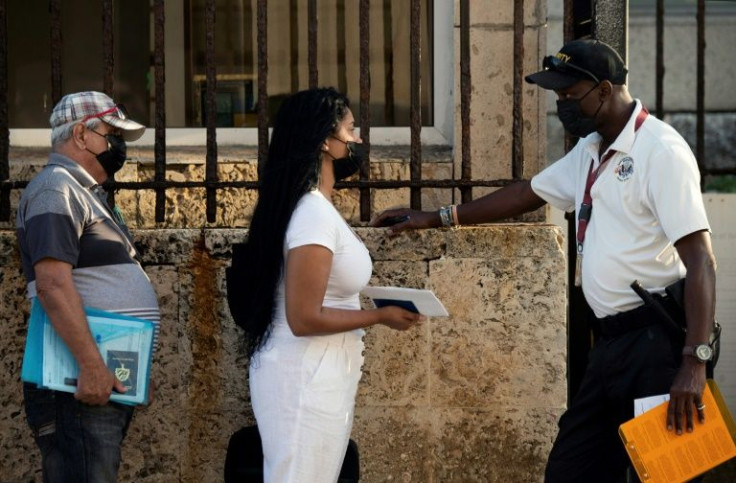US Begins Issuing First Visas In Cuba In More Than 4 Years
The US embassy in Cuba began issuing visas on Tuesday for the first time since alleged sonic attacks against diplomatic staff more than four years ago.
Washington closed its consular services in the Cuban capital in 2017 after US personnel and their families suffered from mystery illnesses subsequently known as "Havana Syndrome."
The closure was a huge blow to many Cubans hoping to emigrate to the United States and escape the economic woes of their island nation.
"Welcome to the embassy after so much time," said a Cuban employee to a small group of people waiting for their appointments in the consular section.
The United States announced two months ago it would begin a "limited" and "gradual" reopening of its embassy and consular services.
It was closed in September 2017 after then-US president Donald Trump hit out at the alleged sonic attacks.

A US government report in 2020 said the illnesses suffered by staff and their families were most likely caused by "directed, pulsed radio frequency (RF) energy."
"We're hoping that everything goes well. I've been waiting three years for this to rejoin my daughter" who is in the United States, said one man who spoke on condition of anonymity. "I haven't seen her for seven years."
Following the embassy closure, Cubans wishing to emigrate to the United States were obliged to overcome numerous obstacles, among them being forced to travel to Colombia or Guyana to submit a request.
Many instead opted to make the perilous journey through Central America and Mexico and enter the United States as undocumented migrants.
The US customs office says more than 78,000 Cubans entered the country from Mexico between October 2021 and March this year.
According to existing immigration agreements, the US should authorize 20,000 immigrant visas a year to Cubans, something it has not been fulfilling.
Cuba is suffering its worst economic crisis in almost 30 years, in large part due to the coronavirus pandemic and the subsequent decrease in tourism.
© Copyright AFP 2024. All rights reserved.





















